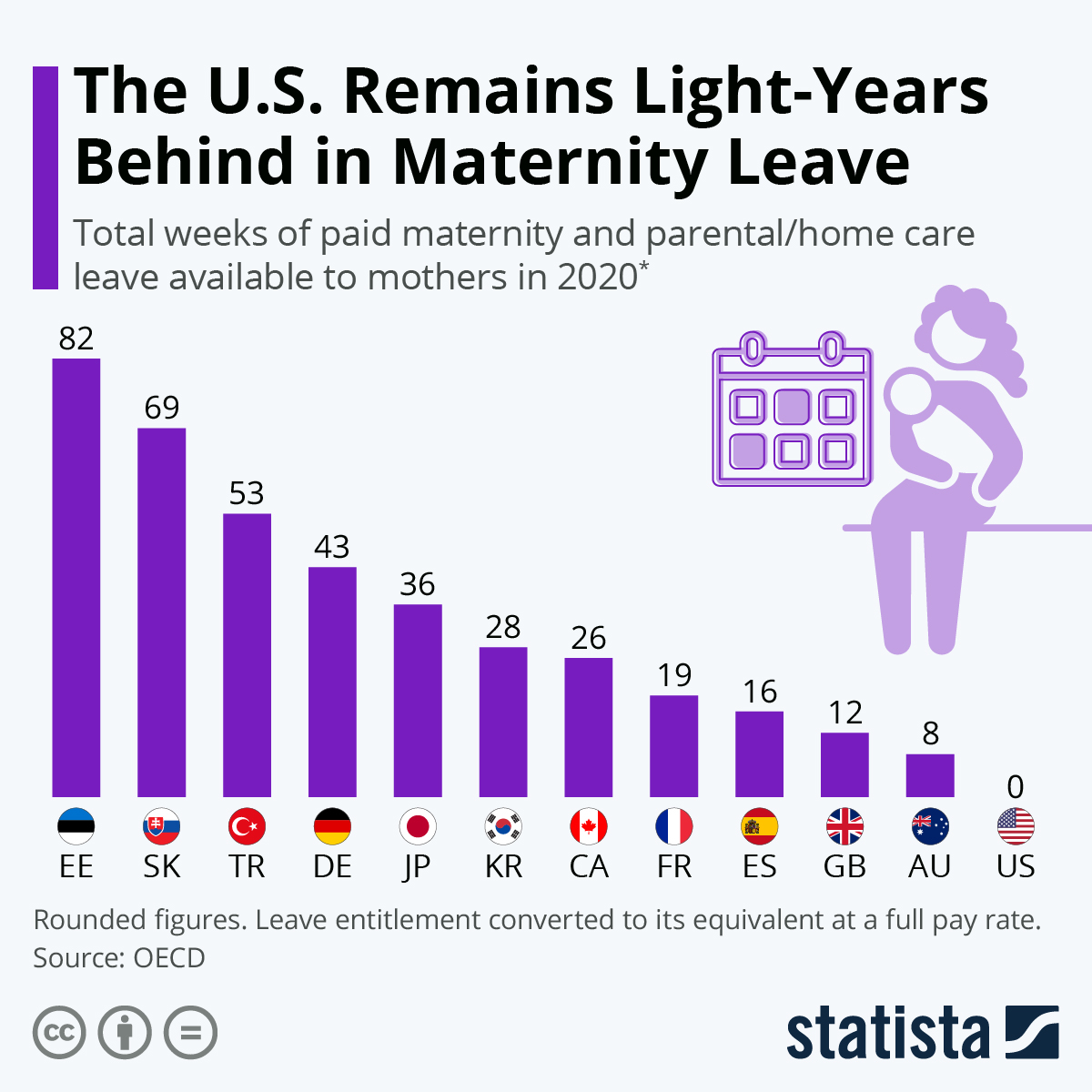The report used data from both Eurostat and the OECD, naming Sweden, Norway and Iceland as the three countries with the most family-friendly policies in place. When it comes to maternity leave specifically, the report defines it as a "job-protected leave of absence for employed women, typically starting just before the time of childbirth". Estonia offers the most paid full-rate equivalent maternity leave (total length of leave entitlement multiplied by the average wage replacement rate) at 85 weeks, followed by Hungary and Austria with 72 and 51 weeks, respectively.
Although the World Health Organization recommends a minimum of 16 weeks of maternity leave, the U.S. offers zero. It is important to mention that the Family and Medical Leave Act of 1993 (FMLA) allows new mothers who have worked in an organization with at least 50 employees to take up to 12 work weeks of unpaid leave during any 12-month period. This is however dependent on a list of requirements such as the mother in question working for at least 1,250 hours over the last 12 months and that the 50 employees are located within a 75-mile radius. Neverthless, 12 U.S. states have enacted their own legislation to support mothers and 12 have addressed the FEMA eligibility requirements. Despite the progress at state level, there was very little change in the number of U.S. women taking maternity leave over the last 20 years.

No comments:
Post a Comment